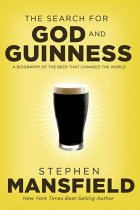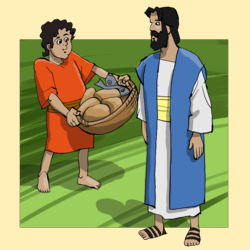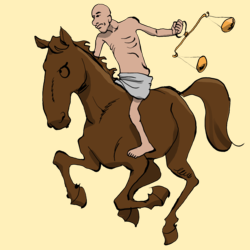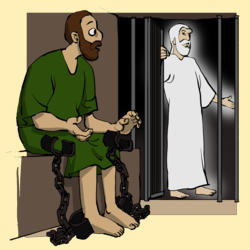 Imagine the scene: It is some time in the middle of the first century AD. You live in the multicultural town of Antioch in the district of Pisidia in southern Turkey, located on a major Roman trade route. You are a merchant of Middle-Eastern descent, and each Saturday you meet with your countrymen in a synagogue in accordance with the Jewish custom. Then one day a couple of wild-eyed strangers walk into town with an interesting story.
Imagine the scene: It is some time in the middle of the first century AD. You live in the multicultural town of Antioch in the district of Pisidia in southern Turkey, located on a major Roman trade route. You are a merchant of Middle-Eastern descent, and each Saturday you meet with your countrymen in a synagogue in accordance with the Jewish custom. Then one day a couple of wild-eyed strangers walk into town with an interesting story.
The story of what happened next is told in Acts chapter 13. On the first week, Paul and Barnabas were invited to give the people any word of encouragement they might have, and Paul spoke at length in a passionate manner about the history of God’s people Israel, and how God had promised to send them a saviour, and how a man called Jesus had been sent to earth as that saviour, and how he had been executed, but miraculously God had raised him from the dead.
After the first week, Paul’s audience were intrigued with the story and wanted to know more, but when huge crowds gathered the following week for the sequel, the dynamics in the room had changed. The leaders could see that the newcomers were stealing their glory, so they hounded them out of town. As has so often happened in the course of human history, truth became a casualty of the quest for personal power.
 It is reasonably well known that one of the world’s most successful beer brands started two hundred and fifty years ago when Arthur Guinness started brewing ales in Ireland. The lesser-known story which is told by
It is reasonably well known that one of the world’s most successful beer brands started two hundred and fifty years ago when Arthur Guinness started brewing ales in Ireland. The lesser-known story which is told by  This is the sixth in a series of posts discussing themes raised in
This is the sixth in a series of posts discussing themes raised in  The best minds in the best institutions generally get it wrong when trying to predict the future, according to
The best minds in the best institutions generally get it wrong when trying to predict the future, according to  A
A  “The Church is the only society that exists for the benefit of those who are not its members.” So said
“The Church is the only society that exists for the benefit of those who are not its members.” So said  What kind of a deal are you signing up for if you decide to become a Christian? There are plenty of prosperity preachers who would like to tell you how much wealthier you will be and how much more secure your lifestyle will be when you align your plans with God’s plan. Such advice does not account for how Peter found himself in a maximum security prison awaiting a public trial and probable execution, as described in
What kind of a deal are you signing up for if you decide to become a Christian? There are plenty of prosperity preachers who would like to tell you how much wealthier you will be and how much more secure your lifestyle will be when you align your plans with God’s plan. Such advice does not account for how Peter found himself in a maximum security prison awaiting a public trial and probable execution, as described in  People with high IQs are not necessarily good at relating to other people, because inter-personal relationships require a different form of intelligence. There has been much recent literature about emotional intelligence; now Steve Saccone has written a book entitled
People with high IQs are not necessarily good at relating to other people, because inter-personal relationships require a different form of intelligence. There has been much recent literature about emotional intelligence; now Steve Saccone has written a book entitled  This is the fifth in a series of posts discussing themes raised in
This is the fifth in a series of posts discussing themes raised in  Kenya is currently facing a famine, with the government saying that 10 million Kenyans – about one quarter of the population – are facing starvation. Amartya Sen, the Nobel Prize-winning economist, has famously said that there has never been a famine in a functioning democracy, yet there seem to be famines in Kenya on a quite predictable basis. Obviously Amartya Sen is of the view that Kenya is not a functioning democracy.
Kenya is currently facing a famine, with the government saying that 10 million Kenyans – about one quarter of the population – are facing starvation. Amartya Sen, the Nobel Prize-winning economist, has famously said that there has never been a famine in a functioning democracy, yet there seem to be famines in Kenya on a quite predictable basis. Obviously Amartya Sen is of the view that Kenya is not a functioning democracy.